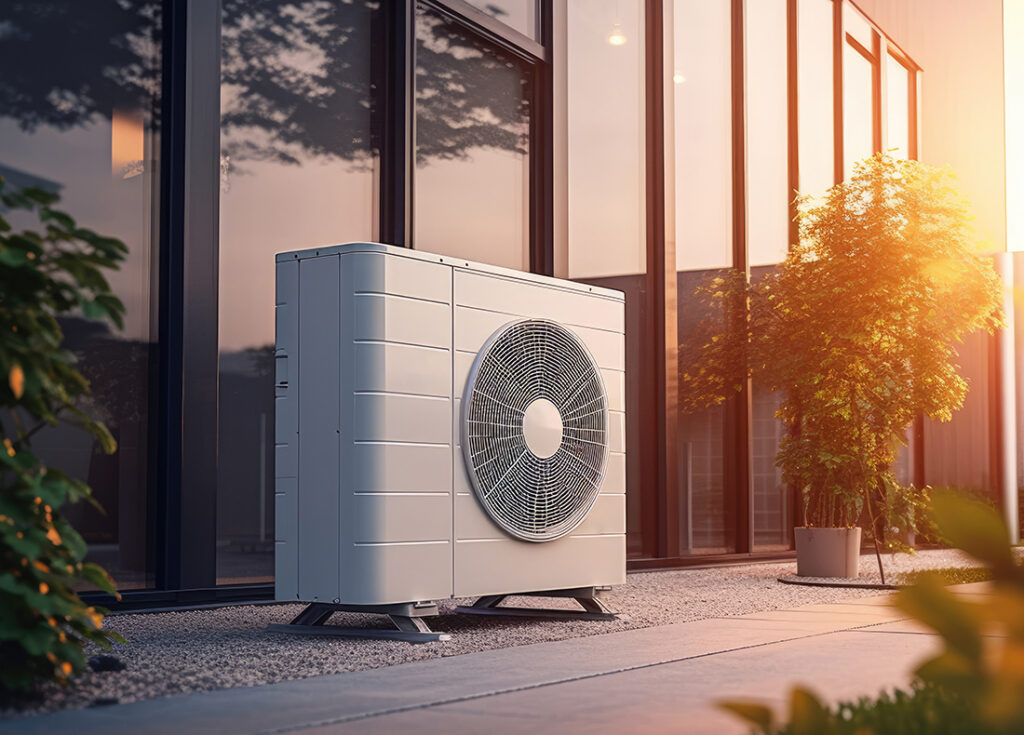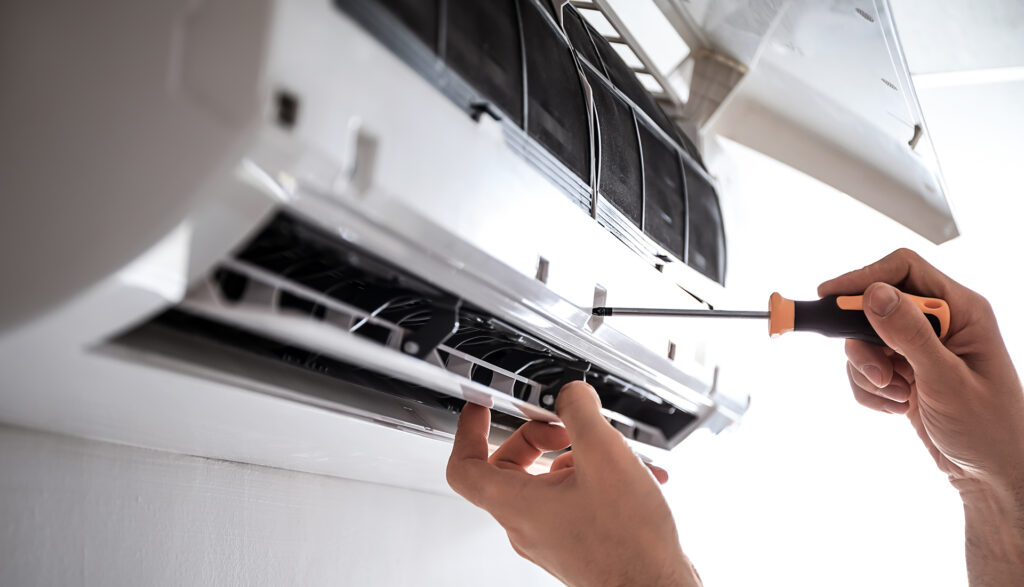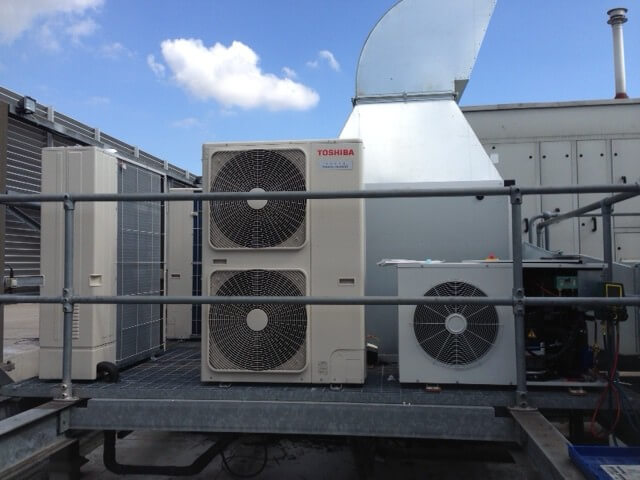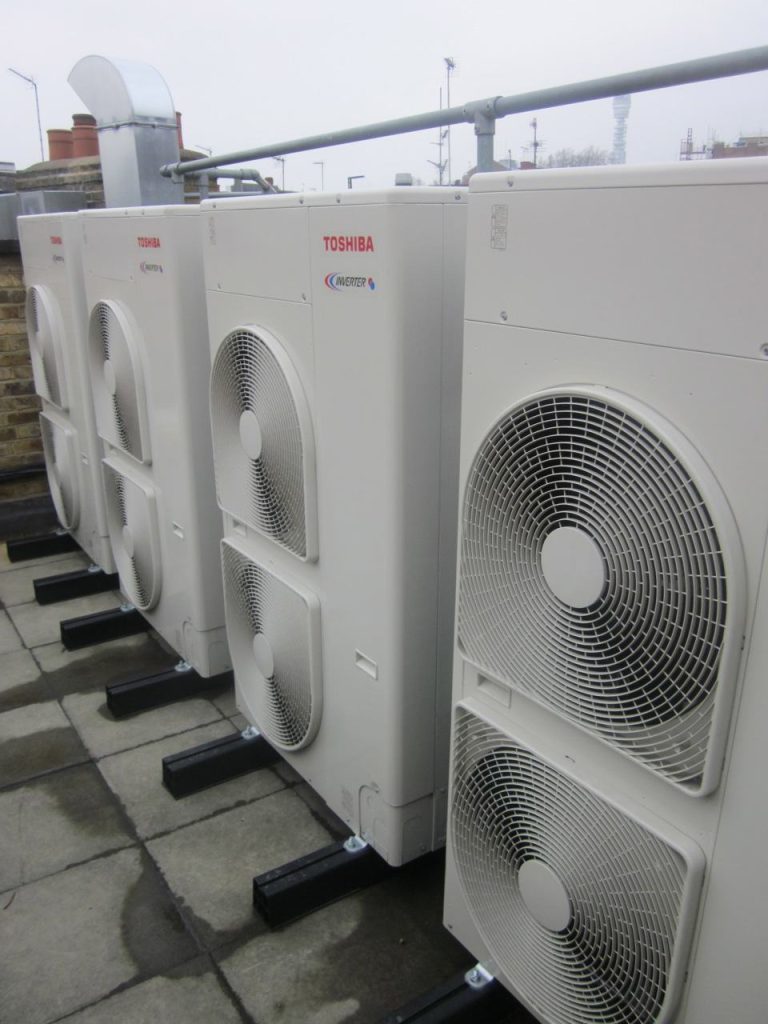F-Gas, Staying Compliant – Legal Obligations for Users of Heating, Ventilation, Air Conditioning and Refrigeration (HVAC&R)

Estimated reading time 11 minutes
In recent years and months, the Environment Agency (EA), an executive non-departmental public body, established in 1996 and sponsored by the Department for Environment, Food and Rural Affairs (DEFRA) who is responsible for protecting and improving the environment, has issued a number of fines for breaches in F-gas regulations.
Fines have included:
- £52,500 for Electrolux for selling F-gas, not holding the appropriate F-gas certificates and failing to keep records. In addition, Electrolux was fined £4,200 for selling F-gas in non-refillable cylinders with no system in place for the return of the cylinders.
- Mariel S.r.l, a company specialising in refrigerant gases and chemical equipment and components, received a fine of £3,000 fine for failing to obtain sufficient Hydrofluorocarbon (HFC) quota before placing HFCs on the UK market.
- Brett trading under Eurochem (SE) was fined over £1m for failing to obtain sufficient HFC quota, failing to report imports of HFCs and failing to keep records of sales.
- Électricité de France (EDF), were fined £75,000 for not having a leak detection system in operation.
- Buy It Direct (BID), owner of online appliance retailer Appliances Direct, were fined £37,500 for selling air conditioning units in breach of Article 11(5) of the F-gas regulation which requires confirmation that air conditioning units will be installed by an engineer with an F-gas handling certificate or a company certificate.
- AGCO were fined £60,000 for failing to obtain sufficient HFC quota.
- IMO Gas Supplies Ltd was found guilty of failing to obtain sufficient HFC quota over a two-year period and fined five fines of £200,000. Additionally, they were fined £10,000 for failing to report imports of HFCs and a £1,500 penalty for not keeping proper records.
According to Ashfords the EA agency has issued more than £3m for breaches of the F-gas regulations over the last 12 months alone, an increase on the previous 12 month period of £1.3m.
What is F-Gas?
F-gas short for Fluorinated Gases are man-made gases which include hydrochlorofluorocarbons (HCFCs), hydrofluorocarbons (HFCs) and Chlorofluorocarbons (CFCs) are used in a wide range of commercial and industrial applications.
The Department of Rural Affairs (DEFRA) F gas regulation in Great Britain state that “F-gases account for 3.02% of UK greenhouse gas emissions. F-gases are used in refrigeration, air-conditioning and heat pumps (79.5% of emissions in 2020), medical inhalers and aerosols (9.8%), electrical switchgear (4.1%), closed-cell insulation foams (3.3%), fire protection systems (2.5%) and other specialist applications (0.8%), such as semi-conductor manufacture, solvents and tracer gases.”
In the case of heating, ventilation and air conditioning refrigerants helps to create the cool air that circulates within a building or room by acting as a refrigerant. The process of air conditioning is based on a simple scientific principle that when a liquid changes to a gas (a process called phase conversion), it results in the absorption of heat.
Air conditioning uses this principle by pumping refrigerants through the system (the compressor) and forcing the refrigerant (that have properties enabling them to change at relatively low temperatures from a low-pressure gas to a high-pressure liquid) to evaporate and condense again and again (the condenser) in a closed system of coils (the evaporator). These refrigerants then transfer the heat from the air inside to the outside air, ensuring that the room or building under air conditioning control is maintained at a set temperature. The refrigerant then flows back to the compressor where the cycle begins all over again. Throughout this continuous process refrigerant levels should remain the same.
Why the Need For F-Gas Regulations?
F. S. Rowland and M. J. Molina published a paper in 1974 Stratospheric sink for chlorofluoromethanes: chlorine atom-catalysed destruction of ozone which looked at the how chlorofluoromethanes CCL3F and CCL2F2, compounds that are chemically inert but will remain in the atmosphere for 40–150 years with concentrations increasing to 10 to 30 times their present levels. They suspected that the chlorine released by these halogenated hydrocarbons was causing the destruction of the ozone layer thereby harming the environment.
A NASA study using measurements carried out by NASA’s Aura satellite provided the proof that “the decline in chlorine, resulting from an international ban on chlorine-containing manmade chemicals called chlorofluorocarbons (CFCs), has resulted in about 20 percent less ozone depletion during the Antarctic winter than there was in 2005.”
Susan Strahan, an atmospheric scientist from NASA’s Goddard Space Flight Center in Greenbelt, Maryland said “We see very clearly that chlorine from CFCs is going down in the ozone hole, and that less ozone depletion is occurring because of it.”
We know that F-gases can stay in the atmosphere for many years and are powerful greenhouse gases, which adversely impact the ozone layer with a global warming potential (GWP) up to 23,000 times greater than CO2. As a result F-gases need to be regulated to contain and reduce its use.
Global Agreement On Need To Regulate F-Gas
The paper by F. S. Rowland and M. J. Molina led to the Montreal Protocol of 1987, a global agreement ratified by 196 nations to protect the ozone layer by phasing out the production and consumption of ozone-depleting substances (ODS) and which subsequently led to the banning of CFCs (2006) and HCFCs (2015).
The European Union’s first F-gas regulation came into force in 2006 and primarily focused on “the prevention of leakage of the gases in-use phase and in end-of-life of stationary equipment.” New 2015 F-gas regulation brought in to broaden the scope of the 2006 regulation.
In late 2016 the Kigali Amendment was ratified with the aim of “an HFC phasedown that reduces consumption by 85% in CO2 tons equivalent (with some variations).”
In April 2022, the European Commission made a legislative proposal to update Regulation (EU) No 517/2014 (the ‘F-gas Regulation’) and new F-gas regulation (EU) 2024/573 was adopted in February 2024.
While part of the EU, the UK followed EU legislation to control Fluorinated gases (F-gases). On leaving the EU F-gas regulations were passed to DEFRA and transferred into UK legislation for regulating ODS and F-gas including ODS and F-gas Regulations (Regulation (EC) No 1005/2009 which establishes the rules on the production, import, export, placing on the market, use, recovery, recycling, reclamation and destruction of substances that deplete the ozone layer, on the reporting of information related to those substances and on the import, export, placing on the market and use of products and equipment containing or relying on those substances that deplete the ozone layer (the ODS Regulation) and Regulation (EU) No 517/2014 on fluorinated greenhouse gases (the F-gas Regulation).
In 2021 DEFRA started a comprehensive review of the retained European Union (EU) F gas Regulation ((EU) No 517/2014), as it applies in the UK, to identify opportunities for further reductions in F-gas emissions. At the end of 2022 DEFRA published the “F gas regulation in Great Britain - Assessment report”.
F-Gas Rules and Regulations
All owners who operate stationary air-conditioning equipment and refrigeration equipment and refrigeration units of refrigerated trucks and trailers which contain F-gas, with a CO2 equivalent charge of 5 tonnes or above, are legally required to ensure their systems are F-gas complaint. As part of F-gas compliancy, systems must be serviced, maintained and leak tested and a record of maintenance and servicing kept of the equipment you operate or service.
Anyone carrying out work to install, service, maintain, repair, decommission or check for leaks in any stationary refrigeration, air conditioning or heat pump equipment (SRAC) containing, or designed to contain F-gas must hold a personal F-gas qualificationsuch as City & Guilds 2079, BESA F-gas, CITB J11, or LCL F-gas and must hold a DEFRA approved Stationary Equipment Qualification Company Full Certificate, issued by Refcom.
F-gas leak checking depends on the amount of F-gas in the equipment and the global warming potential of the F-gas (how much the F-gas contributes to global warming). Your air conditioning system should be labelled with information on the amount of F-gas it contains, but if you cannot find this you can estimate it using the calculator provided by UK Government to express the mass of a F-gas in terms of CO2 so that you comply with F-gas regulations.
How often you the equipment is checked depends on the CO2 equivalent charge weight of the system:
- 5-50 tonnes and above – at least every 12 months.
- 50-500 tonnes and above – at least every 6 months.
- 500 tonnes and above – at least every 3 months.
If you install a system which allows automatic detection of F-gas leaks, you can double the period of time allowed between leak checks. If your equipment contains an F-gas equivalent of 500 tonnes or more of carbon dioxide then you must fit a leak detection system.
Records must be kept for 5 years on the:
- quantity and type of gas in the equipment when it’s installed, added during maintenance (for example in leak repairs) or recovered/reclaimed
- identity of the company and air conditioning or refrigeration engineer carrying out servicing
- what you’ve done to recover and dispose of gas e.g. you should record the name, address and certificate number of the recycling or reclamation facility must also be recorded or the registered waste carrier you use to dispose of it
- you must also keep records of the name, address and certificate number of any companies used to install, service or decommission your equipment
- dates and results of all mandatory leak checks and the equipment it applies to
The obligations and responsibilities with respect to recording refrigerant usage and maintaining and monitoring systems for leaks are:
- To prevent the unintentional release of F gases during production and use.
- To prevent intentional release of F gases.
- To use leakage detection systems.
- To minimise and repair leakages.
- To check leaks and keep records.
- To provide evidence that Trifluoromethane produced during the production of F gases has been destroyed.
- To recover F gases from equipment for recycling, reclamation or destruction.
- On placing certain products and equipment on the market.
- On sales of F gases to businesses which do not hold the relevant certificates or attestations.
- For correct product and equipment labelling.
- On the use of certain F gases for magnesium die-casting, vehicle tyres or servicing certain refrigeration equipment.
In the case of ODS responsibilities are:
- To maintain equipment
- Control leaks.
Businesses unable to provide the necessary records to prove their compliancy with F-gas regulations can receive a penalty notice and further fines if not promptly addressed.
Replacing Old F-gas Air Conditioning Systems
Current legislation still allows for R22, an HCFC refrigerant gas, which was commonly used within air conditioning systems and industrial refrigeration prior to 2003. However, given that R22 is now banned and cannot be replaced any repair or maintenance issues where a leak has occurred will have serious implications.
As these systems are now at the end of their life any companies still using equipment which is still using R22 should be looking to replace them as soon as possible. This is especially true where a system is business critical and could result in downtime and loss of earnings.
Today’s new air conditioning systems are far more energy efficient and will pay for themselves through the savings that will be made in energy bills. As a company you will also be playing your part in reducing CO2 emissions.
Heating, Ventilation and Air Conditioning Installation and Support
Given the implications of ensuring your business is meeting its legal obligations in terms of F-gas compliance it’s important for business owners, facility and office managers to fully understand their responsibilities. By contracting with a professional air conditioning and refrigeration company with in-house expertise in HVAC and refrigeration expertise and fully qualified to carry out full maintenance, servicing and record keeping you can be sure that your business is fully covered and fully compliant.
Additionally ensuring your HVAC is properly maintained will not only prolong the lifespan of your system but it will also help to ensure that your air conditioning or refrigeration system, as a whole and its individual parts, will continue to work efficiently and effectively day in and day out, saving you time and money in the long run.
When it comes to replacing your old system Synecore can provide helpful advice on suitable products that meet the needs of your premises and your business. Our qualified project managers and engineers provide a professional installation and commissioning service on new air conditioning and refrigeration systems. We will also decommission your old system and dispose of it in the correct manner.
We provide the installation of high-quality products from leading manufacturers and our customers benefit from our 10-year warranty when they sign up to our cost-effective planned preventative maintenance plans that offer complete peace of mind.
To book a free survey, please speak to our team on 01795 509 509 or via our contact form.



